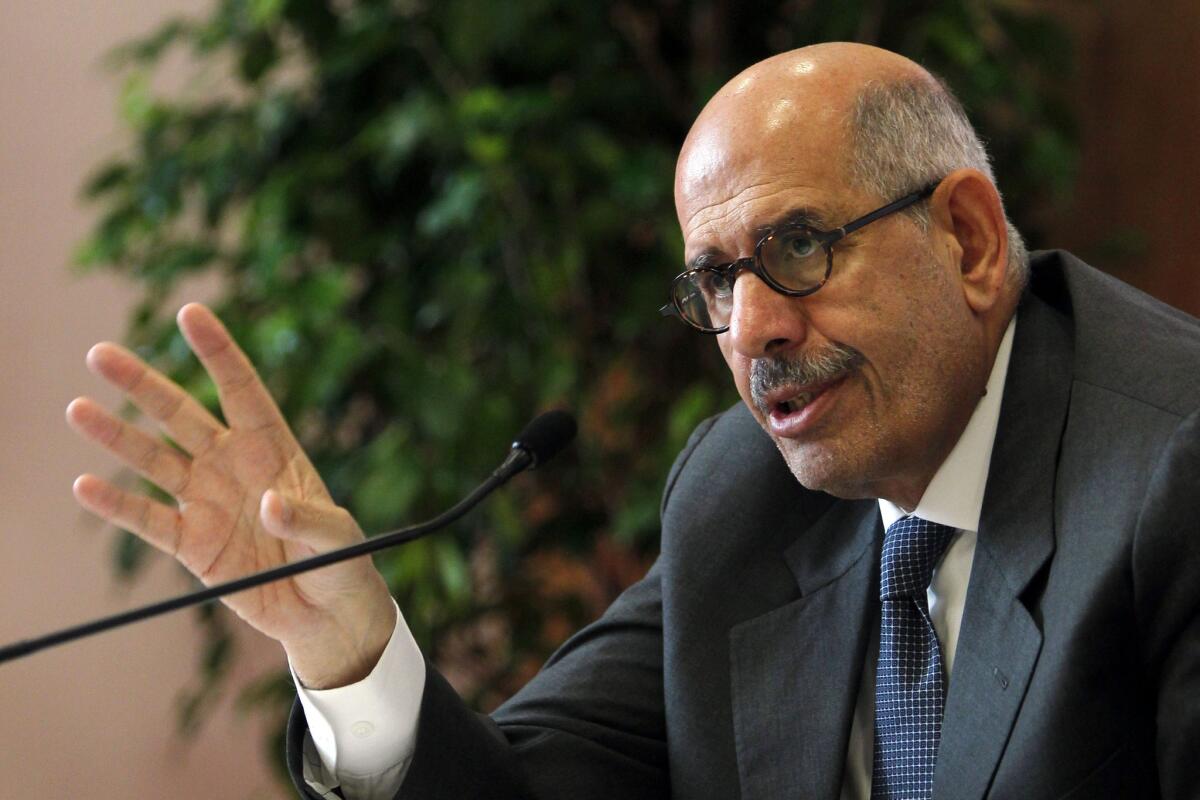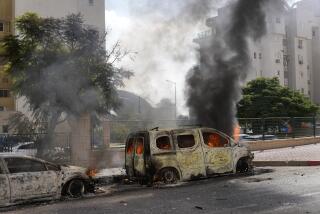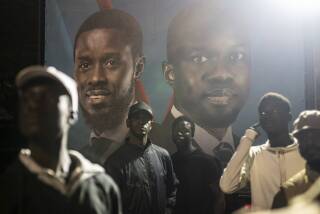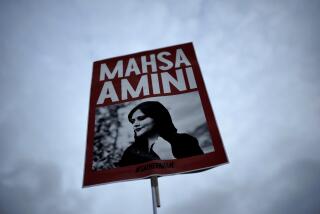Egypt’s VP Mohamed ElBaradei resigns in protest against crackdown

CAIRO -- Egyptian Vice President Mohamed ElBaradei, a Nobel Peace Prize laureate, resigned Wednesday in protest over a crackdown by security forces that killed scores of supporters of deposed Islamist President Mohamed Morsi and tipped the nation into civil strife.
ElBaradei had been the most influential voice for a peaceful resolution in the standoff between tens of thousands of Morsi loyalists and the new military-installed government. His departure is a blow to Egypt’s international reputation and a sign that hard-liners within the government have emerged as more powerful than liberals.
“I saw that there were peaceful ways to end this clash in society; there were proposed and acceptable solutions for beginnings that would take us to national consensus,” he wrote in a resignation letter. “It has become difficult for me to continue bearing responsibility for decisions that I do not agree with and whose consequences I fear. I cannot bear the responsibility for one drop of blood.”
The former head of the United Nations nuclear regulatory agency, ElBaradei was named only weeks ago as vice president for world affairs. Indications that he was threatening to resign last week prompted the army, which controls the country, to seek a peaceful settlement with Morsi and his Muslim Brotherhood movement.
But neither side would budge. The military refused to release Morsi, who was toppled in a coup last month, and much of the Brotherhood’s leadership from detention. The Brotherhood would not recognize the new government as legitimate and told tens of thousands of its supporters not to abandon two sit-ins in Cairo.
Police stormed those demonstrations at Cairo University and across town at the Rabaa al Adawiya mosque Wednesday, touching off clashes across the country. The Health Ministry reported that at least 149 people had died and more than 875 were wounded. The Brotherhood said at least 300 of its supporters were killed.
ElBaradei had been heavily criticized by hard-liners for seeking a negotiated solution to the crisis. He had been attacked in newspaper columns and on television talk shows, but he continued to press his case until just before 7 a.m. Wednesday, when the police operation began.
“Those who want to crush the Brotherhood accuse me of being soft. I don’t believe my concern over the loss of lives makes me a soft man,” ElBaradei said in a recent television interview. “It’s easy to get angry and say we’ll crush the Islamists, but it will result in massive deaths.”
ALSO:
18 feared trapped aboard sunken India submarine
Kerry, on visit to Brazil, gets earful over NSA spying
Europe shows signs of economic recovery as Eurozone recession ends
Twitter: @JeffreyLAT
More to Read
Start your day right
Sign up for Essential California for news, features and recommendations from the L.A. Times and beyond in your inbox six days a week.
You may occasionally receive promotional content from the Los Angeles Times.







